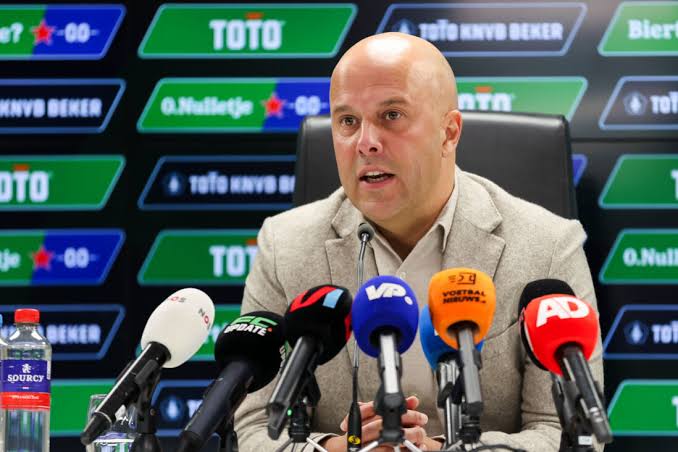England & Liverpool legend declared bankrupt over £1.5m debts as ‘serve as a deterrent’ warning sent

John Barnes. A name that once made defenders tremble and fans rise to their feet in joy. A name that echoed across Anfield and Wembley alike, a symbol of artistry, speed, flair, and magic on the wing. Yet today, the same name is making headlines not for footballing brilliance, not for goals or trophies, but for financial ruin. A High Court decision has declared the Liverpool and England legend bankrupt, with debts amounting to an eye-watering £1.5 million. A tragic twist in the tale of one of football’s most dazzling icons, a reminder that even heroes are human, even legends can fall, and even kings can be stripped of their crowns.
For many, the story feels almost unreal. John Barnes was more than just a footballer. He was a cultural figure, an inspiration, a pioneer who carried himself with grace on the pitch and gave fans joy at a time when English football was rough, physical, and brutal. He was a shining light at Liverpool, a key figure in Bobby Robson’s England side, and a player who set standards that others wanted to follow. How then did such a man end up here—declared bankrupt, burdened with debts, and used as a warning to others?
The case was brutal in its details. Barnes’ media company, John Barnes Media Limited, collapsed, leaving behind staggering debts. Nearly £777,000 was owed to HMRC in unpaid VAT, National Insurance, and PAYE. That alone would have crushed most men, but there was more—£461,849 in unsecured debts and a £226,000 director’s loan still outstanding. It was a hole so deep that not even Barnes’ steady instalment payments could fill it. The High Court finally drew the curtain last week, and the order was published in the London Gazette. For Barnes, it was official—he had fallen from financial grace.
It is hard to reconcile this picture with the Barnes of old. In the late 1980s, he was English football’s first £10,000-a-week player. Back then, that figure was astonishing, almost obscene, a sign of how the game was changing and how stars like him were ushering football into a new era of money and fame. Barnes was the poster boy of it all—the glamour, the success, the promise of a new world. Now, decades later, the same man is standing in the dock as an example, a “deterrent,” the court said, to other high-profile figures who might think they can dance around tax and company liabilities. A cruel irony. From being the symbol of football’s financial rise, he is now the warning sign of financial destruction.
This is not Barnes’ first brush with financial trouble. Since 2010, he has faced multiple bankruptcy petitions. Just last year, HMRC came for him with a £238,000 tax bill. Back then, he managed to wriggle free, to settle, to fight another day. But this time, the tide was too strong. The wave has crashed down fully, and Barnes has been swept under.
But unlike some who hide or make excuses, Barnes has been open about his troubles. He admits that poor advice, misplaced trust, and bad luck all played a role. On the *All Things Business* podcast earlier this year, he laid it bare: “Like a lot of elite sportspeople, I got burned because I trusted people. I got caught out a couple of times and ended up losing between £1m and £1.5m over four years.” The numbers are staggering, but the honesty cuts through. He tried, he failed, and he is admitting it. In a football world where denial is often the first language, Barnes’ candour feels refreshing, if heartbreaking.
He also wanted to clear the air. Reports often made him look like a man dodging taxes, a man hiding assets, a man trying to cheat the system. Barnes insists that this is not the case. “I’ve already sold everything,” he said. “I don’t have any assets. Every time something new comes up, stories appear in the press saying negative things about how I am not paying my taxes, even though I’m going to court not to be made bankrupt, but to ask for permission to keep paying.” His words carry the weight of a man who feels misunderstood, perhaps even unfairly vilified. He knows football is a working-class sport. He knows fans sweat and bleed for their wages, and the last thing he wants is for them to think he is some rich man dodging responsibilities. His statement is clear: I have lost it all, but I am not trying to cheat anyone.
Still, the fall is devastating. For Liverpool fans who remember his dazzling runs down the wing, his unforgettable goals, and his part in the club’s late-80s dominance, this news is hard to stomach. John Barnes was not just a player; he was an artist. He painted football with his feet. He was grace and power combined, a man who could glide past defenders as if they were ghosts. For England, he was the man who scored one of the most famous goals of all time against Brazil at the Maracanã in 1984, slaloming past players in white, carving his name into footballing folklore. To think that such a man, a hero, a symbol, is now financially ruined—it feels cruel, almost unjust.
But this is the reality of life after football. The game gives, but the game also takes. Barnes’ story is not unique. Many footballers have earned millions only to see it vanish through poor management, bad investments, and broken trust. The money is large, but so too are the risks, and without the right guidance, even a king can be brought to his knees. Barnes himself admitted that he “trusted people” and “got burned.” In those words, you hear the echo of so many fallen stars.
For Barnes, though, it is even more tragic because of what he represented. He was more than just a footballer. He was a black icon in a time when racism was rampant in English football. He stood tall against abuse, against hate, against prejudice. He became a symbol of dignity and resilience. He carried not just Liverpool, not just England, but an entire community on his shoulders. That such a man is now reduced to bankruptcy filings and tax debts is a bitter pill for many to swallow.
Yet perhaps Barnes’ honesty can turn this moment into something meaningful. The court may see his bankruptcy as a deterrent, but fans may see it as a lesson, a warning, a reminder that fame and fortune are fleeting, and that even heroes can be caught in the snares of life’s brutal realities. In some ways, Barnes remains a teacher, still giving lessons, even if these are not the ones fans wanted.
As he stands today, stripped of assets, burdened with debts, his reputation bruised by financial ruin, Barnes still holds onto one thing: his dignity. He refuses to let people think he is a cheat. He refuses to let the working-class fans who adored him believe he has betrayed them. And maybe, in that small way, he is still the John Barnes they loved—the man who fought, who carried himself with grace, who faced challenges head-on.
From glory to grit, from the magic of the wing to the cold grip of bankruptcy court, Barnes’ story is now a cautionary tale. But it is also a human story. Behind the glitter of trophies, the roar of crowds, and the shine of history, there is a man who made mistakes, who trusted wrongly, who fell. And in that humanity, perhaps fans can find a different kind of respect—not for the wealth he lost, but for the honesty he kept.
John Barnes, the legend of Anfield, the darling of the Kop, the star of England, may now be bankrupt. But in the hearts of those who saw him glide past defenders, who cheered his goals, who stood with him against hate—he will always remain priceless.















